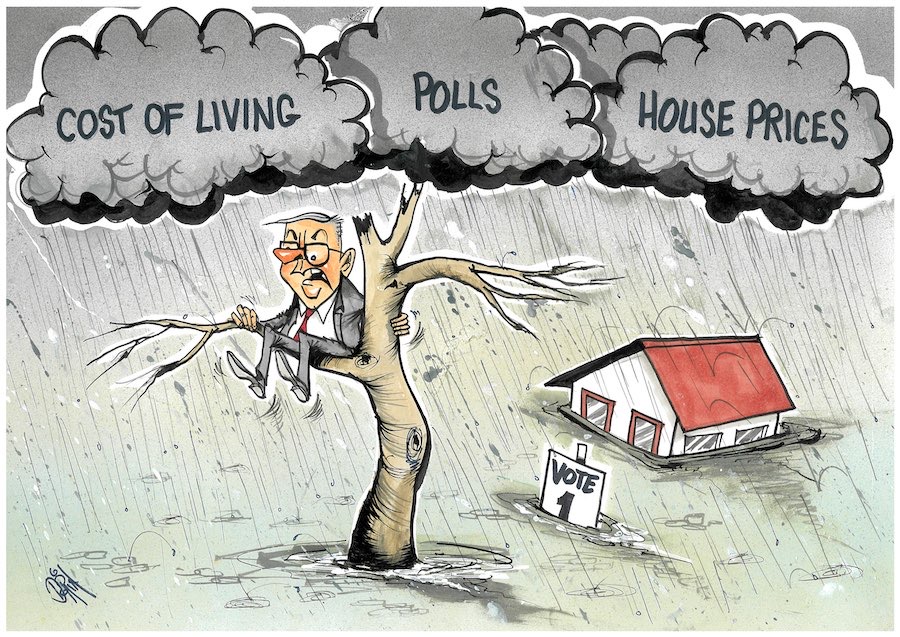
“If the prisoner was released and paid a large sum by the government, wouldn’t you think that, since the lawyer had done a lot of work, the bargain should be honoured? Well, you’d be wrong, writes HUGH SELBY.
“PRO bono” – for the public good – these are legal services that are provided for no fee. Hence, they are rare, avoided by most lawyers.

They are now to become even rarer. We will all be the poorer.
“Pro bono” is the usual approach in “wrongful conviction” cases – notoriously hard to overturn – often requiring years of work that is done from a sense of wanting to remedy a seeming injustice.
Those lawyers who agree to do it have no idea how much time and effort will be spent, nor how much abuse will be copped in the process. They are innocents abroad who acquire bitter lessons on their journey.
Typically, the work in such cases involves many hundreds of hours – sifting through masses of records, carrying out investigations, writing submissions and being repeatedly rebuffed by people being paid while the pro bono lawyer gets nothing.
Those who take “pro bono” cases can rightly hope to be recompensed if the client acquires the means to pay. The lawyer can say to the client: “At the moment you don’t have any funds. I’ll work on your case for no fee, but if you are released and win the lottery, or you come into funds in any other way, such as by inheritance or a government payout, then I expect you to pay”.
A prisoner client, serving many years, will welcome this offer.
Keep in mind that the prisoner has no funds, a long sentence and the bare hope that this altruistic lawyer is prepared to take a very long-odds gamble. If you were the prisoner, wouldn’t you agree to this offer? There is no downside. It’s not a bargain with the devil. It’s a bargain with a living saint.
Does it need to be in writing to show how reasonable it is? No.
And if the prisoner was later released and paid a large sum by the government, wouldn’t you think that, since the lawyer had done a lot of work, the bargain should be honoured?
In an ideal world, surely the grateful prisoner would want to pay the lawyer. In the real world where “grateful” is aspirational, one would still hope, even expect, that the court would step in, using its inherent powers, to set out a means for assessing this “success” fee and ensure that the ungrateful, former incarcerated client paid at least some recompense to the lawyer – sharing the luck, so to speak.
Well, you’d be wrong – at least in SA (and since it is an appellate decision, it applies across the country). Their appeal court decided in late March that a lawyer got nothing for all his efforts over many years (Hegarty v Keogh No. 2 [2023] SASCA 30).
They said that the agreement about the lawyer’s efforts had to be in writing. Spoken wasn’t enough. They said that since it was a later law change (to allow a “new” appeal), and new lawyers, that got the prisoner out of jail, all the work – which was appropriate when it was done – was irrelevant, didn’t count and so had no value.
The judgment showed no awareness of the conduct of “wrongful conviction” campaigns: how they were initiated; how they developed; the emotional trauma; the amount of effort met by inevitable dead ends, wrong turns, disappointments; and, the need to keep fingers crossed for a bit of luck, if not tomorrow then soon, please, soon.
It gets worse. The decision says that because the prisoner was released and the DPP chose not to have a second trial that the release was not a release. Then it contends that because the payment made by the government was “ex gratia” with no admissions that it was not compensation.
That’s an odd bit of interpretation: the prisoner was freed, is free, and the government gave him a lot of money.
But why does it matter to you and me? It matters because “pro bono” is an essential element – albeit a last-ditch one – in our legal system, a system in which mistakes are inevitable and resistance by police, prosecutors and judiciary to later acknowledging those mistakes is also inevitable.
Without “pro bono” there will be more injustice. “Pro bono” work needs to be encouraged, especially for long-term campaigns. The SA decision kills off such campaigns. A written agreement for a “wrongful conviction” campaign is pie in the sky. It assumes a state of certainty when there is nothing but uncertainty and despair.
This recent SA, three-judge decision needs to be overturned. An application is to be made to the High Court. If successful, then that court may give guidance about not only “pro bono” engagements that are “open ended” as to their duration, but also when and how it is proper to value work that has been done by an altruistic lawyer over many years. Fingers crossed that “no good deed goes unpunished” is not a rule of our lives.
Hugh Selby is the “CityNews” legal affairs commentator. His free podcasts on “Witness Essentials” and “Advocacy in court: preparation and performance” can be heard on the best known podcast sites.
Who can be trusted?
In a world of spin and confusion, there’s never been a more important time to support independent journalism in Canberra.
If you trust our work online and want to enforce the power of independent voices, I invite you to make a small contribution.
Every dollar of support is invested back into our journalism to help keep citynews.com.au strong and free.
Thank you,
Ian Meikle, editor









Leave a Reply